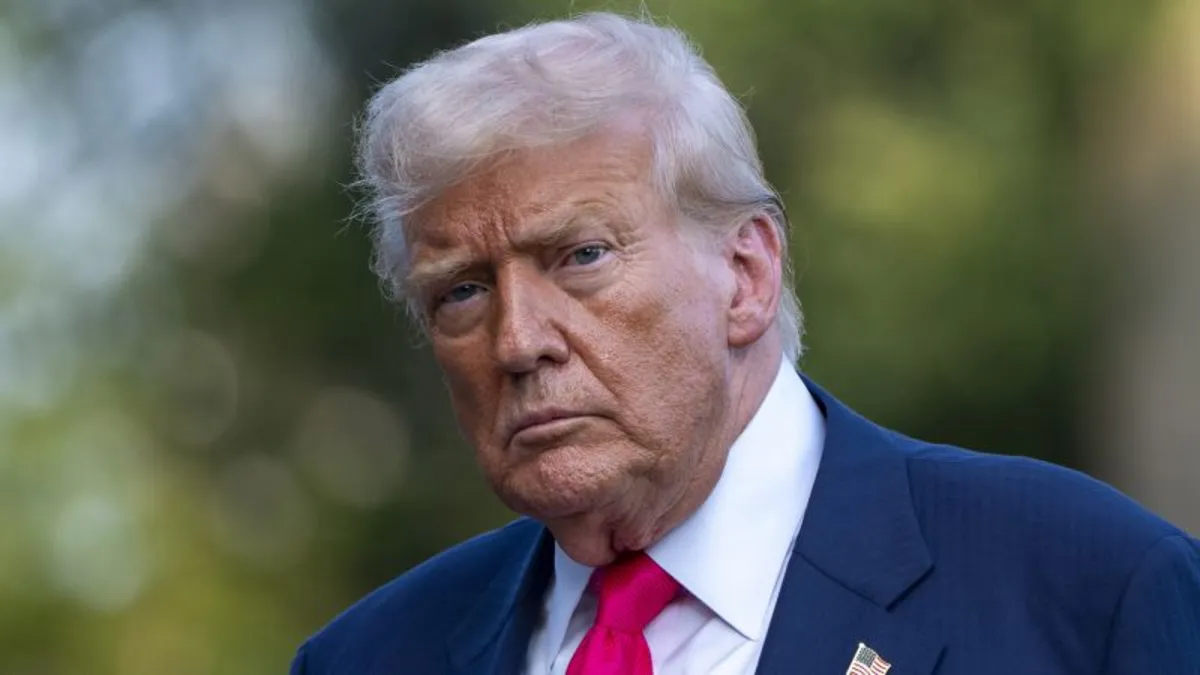
Former President Donald Trump has publicly criticized some of his former allies, labeling them as “weaklings” who are succumbing to what he describes as Democratic “bullshit” regarding the late sex offender Jeffrey Epstein. This statement reflects a significant rift within Trump's coalition, as many of his supporters are increasingly demanding transparency concerning Epstein, whose death by suicide in 2019 has spawned numerous conspiracy theories.
In a message shared on Truth Social, Trump expressed his frustration, stating that his political opponents have struck “pay dirt” with the Epstein scandal, using it as a weapon against him. He referred to the situation as the “Jeffrey Epstein Hoax” and accused some of his past supporters of being misled by the “Lunatic Left” over the last eight years. Trump lamented that the ongoing focus on Epstein is diverting attention from what he claims are his substantial achievements during his presidency.
“I have had more success in 6 months than perhaps any President in our Country’s history,” Trump asserted, urging his supporters to refocus on his accomplishments rather than the Epstein controversy. He expressed a desire to distance himself from those he now considers to be undermining his efforts. “Let these weaklings continue forward and do the Democrats' work,” he wrote, indicating that he no longer wishes to receive their support.
Despite Trump's harsh words, some Republicans in Congress are pushing for more information regarding the Epstein case. On Wednesday morning, they took steps to potentially compel the Justice Department to release additional documents related to Epstein. House Speaker Mike Johnson has been vocal about the need for transparency, stating, “We should put everything out there and let the people decide it.” He later echoed Trump’s sentiment that only “credible information” should be disclosed to the public.
The situation is becoming increasingly contentious, with Rep. Marjorie Taylor Greene working to force a vote that would mandate the Justice Department to release all documents related to Epstein. Greene has teamed up with Rep. Thomas Massie in an effort that may require bipartisan support to succeed. They plan to utilize a discharge petition, which necessitates at least 218 signatures from House lawmakers to proceed, indicating significant tension within the party.
As the drama unfolds, members of Congress are grappling with how to address their constituents' concerns over the Epstein issue. Rep. Eric Burlison of Missouri noted that this topic has dominated constituent calls, reflecting widespread frustration among the American public regarding government transparency and accountability. He emphasized the importance of justice for Epstein's victims and questioned the relationship between the government and the people it serves.
House Oversight Committee Chair James Comer has indicated that discussions are ongoing about the legal options available to push for more information, although he has not suggested any measures such as subpoenas that could compel compliance from the Trump administration. Other lawmakers have called for public testimony from Ghislaine Maxwell, Epstein's associate currently serving a 20-year sentence for her involvement in the exploitation of minors.
Interestingly, Trump has shown some willingness to allow for more information to be released, should Attorney General Pam Bondi deem it credible. While he has previously downplayed the significance of the Epstein controversy, he acknowledged the importance of credible evidence in any further disclosures. Bondi, however, has recently downplayed the likelihood of releasing more files, stating that her department's previous memo declining to disclose additional documents speaks for itself.
As the situation develops, it remains to be seen how the Republican Party will navigate the internal conflict surrounding the Epstein case and the calls for transparency from both constituents and fellow lawmakers. The political landscape continues to evolve, with Trump’s influence and the reactions of his supporters playing a critical role in shaping the narrative.